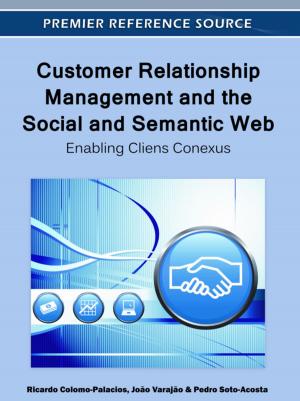Handbook of Research on Learning in the Age of Transhumanism
Nonfiction, Computers, Advanced Computing, Artificial Intelligence, Reference & Language, Education & Teaching, Teaching, Computers & Technology| Author: | ISBN: | 9781522584339 | |
| Publisher: | IGI Global | Publication: | May 3, 2019 |
| Imprint: | Information Science Reference | Language: | English |
| Author: | |
| ISBN: | 9781522584339 |
| Publisher: | IGI Global |
| Publication: | May 3, 2019 |
| Imprint: | Information Science Reference |
| Language: | English |
As a movement, transhumanism aims to upgrade the human body through science, constantly pushing back the limits of a person by using cutting-edge technologies to fix the human body and upgrade it beyond its natural abilities. Transhumanism can not only change human habits, but it can also change learning practices. By improving human learning, it improves the human organism beyond natural and biological limits. The Handbook of Research on Learning in the Age of Transhumanism is an essential research publication that discusses global values, norms, and ethics that relate to the diverse needs of learners in the digital world and addresses future priorities and needs for transhumanism. The book will identify and scrutinize the needs of learners in the age of transhumanism and examine best practices for transhumanist leaders in learning. Featuring topics such as cybernetics, pedagogy, and sociology, this book is ideal for educators, trainers, instructional designers, curriculum developers, professionals, researchers, academicians, policymakers, and librarians.
As a movement, transhumanism aims to upgrade the human body through science, constantly pushing back the limits of a person by using cutting-edge technologies to fix the human body and upgrade it beyond its natural abilities. Transhumanism can not only change human habits, but it can also change learning practices. By improving human learning, it improves the human organism beyond natural and biological limits. The Handbook of Research on Learning in the Age of Transhumanism is an essential research publication that discusses global values, norms, and ethics that relate to the diverse needs of learners in the digital world and addresses future priorities and needs for transhumanism. The book will identify and scrutinize the needs of learners in the age of transhumanism and examine best practices for transhumanist leaders in learning. Featuring topics such as cybernetics, pedagogy, and sociology, this book is ideal for educators, trainers, instructional designers, curriculum developers, professionals, researchers, academicians, policymakers, and librarians.















